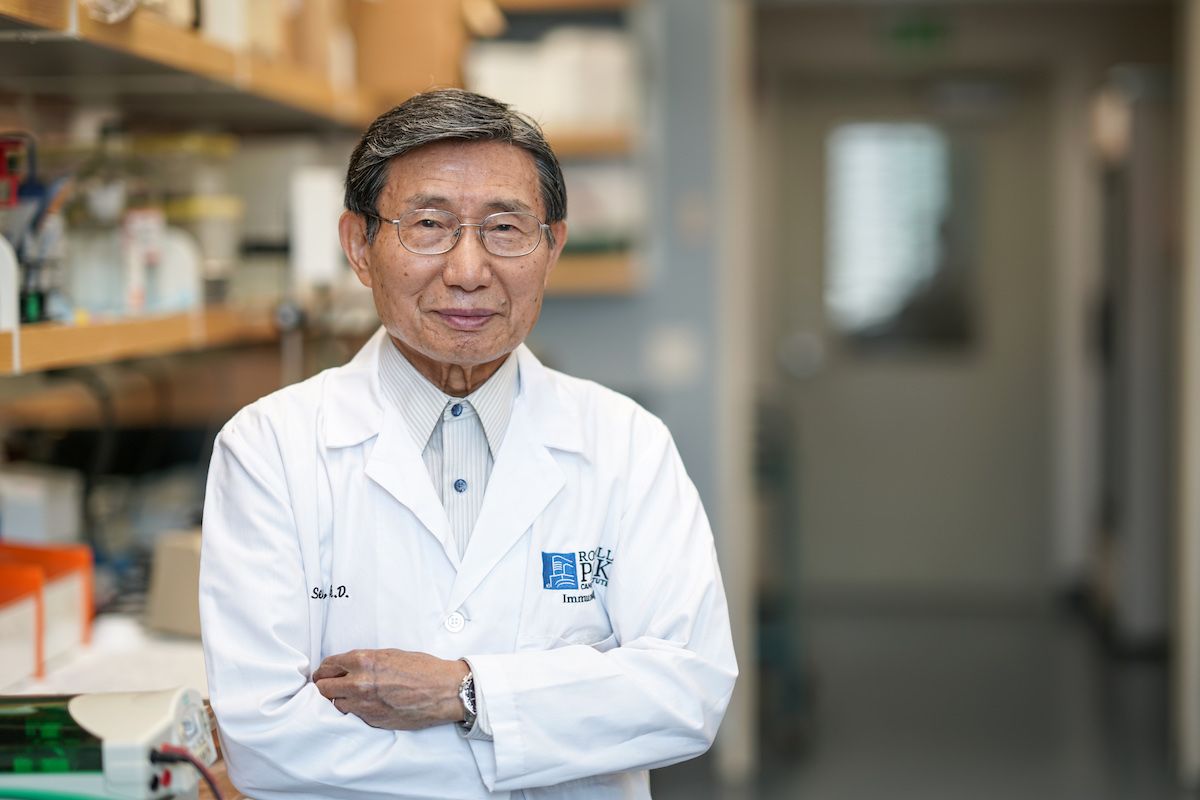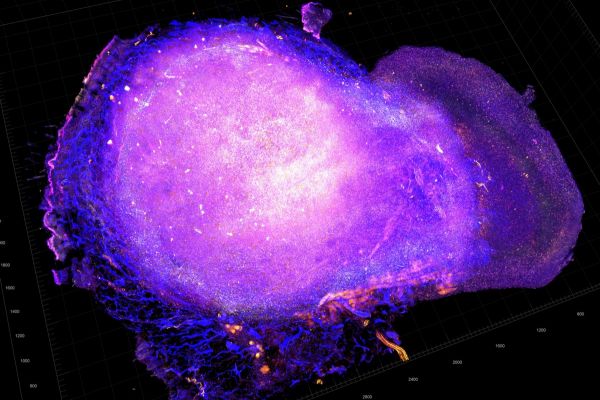Patients with an aggressive form of non-Hodgkin lymphoma (NHL) now have a new treatment option — and it began with the work of Roswell Park cancer researcher Ben Seon, PhD, Professor in the Department of Immunology. Approved by the FDA in June 2019, the new immunotherapy/chemotherapy combination — called polatuzumab vedotin (brand name Polivy™) — is intended specifically for patients with diffuse large B-cell lymphoma (DLBCL) that has not responded to treatment or that has recurred (returned after treatment) following two previous treatments. Until now, those patients had few remaining options.
DLBCL is the most common type of non-Hodgkin lymphoma, both in the United States and around the world. More than 18,000 people in the U.S. are diagnosed with DLBCL each year.
This marks the first time an immunotherapy originating at Roswell Park has been part of an FDA-approved treatment. Polivy is an antibody-drug conjugate, which means it combines a drug with a type of immunotherapy called a monoclonal antibody. A monoclonal antibody is a protein made in a laboratory that can zero in on a cancer cell, latch onto it and either kill it directly or deliver chemotherapy or radioactive substances to kill it. Polivy is designed to target CD79b, a protein produced by most of the immune cells affected by B-cell lymphoma.
Back in the 1980s, Dr. Seon found a way to isolate CD79b, creating the antibody that is now called polatuzumab vedotin. That discovery laid the groundwork for the development of Polivy, which is manufactured by Genentech Inc.
“Dr. Seon has played a fundamental role in the development of antibody-based therapy for lymphoma,” says Francisco Hernandez-Ilizaliturri, MD, Roswell Park’s Chief of Lymphoma. “The results of the most recent clinical trials show this is an effective combination for many patients, and we hope this important new treatment option will help a number of patients in the future.”
“What Ben has done is really remarkable,” adds Kelvin Lee, MD, the Jacobs Family Chair in Immunology and Senior Vice President for Basic Science at Roswell Park. “Through his systematic, diligent approach, he came up with ideas decades ago in his lab that larger teams have only begun to hit on in the last few years.”
Dr. Seon’s work highlights the importance of basic research, which is sometimes called bench research or laboratory research. His team focuses on discovering unique targets that can be used to develop new targeted cancer treatments.
“My father died from stomach cancer when I was a high school student, and my brother died of cancer many years ago, in his 50s,” says Dr. Seon, whose work has been supported in part by donations to Roswell Park and by grants from the National Cancer Institute and American Cancer Society. “So it’s always been in my mind that hopefully someday I could find a new cancer drug, a better cancer drug.”

